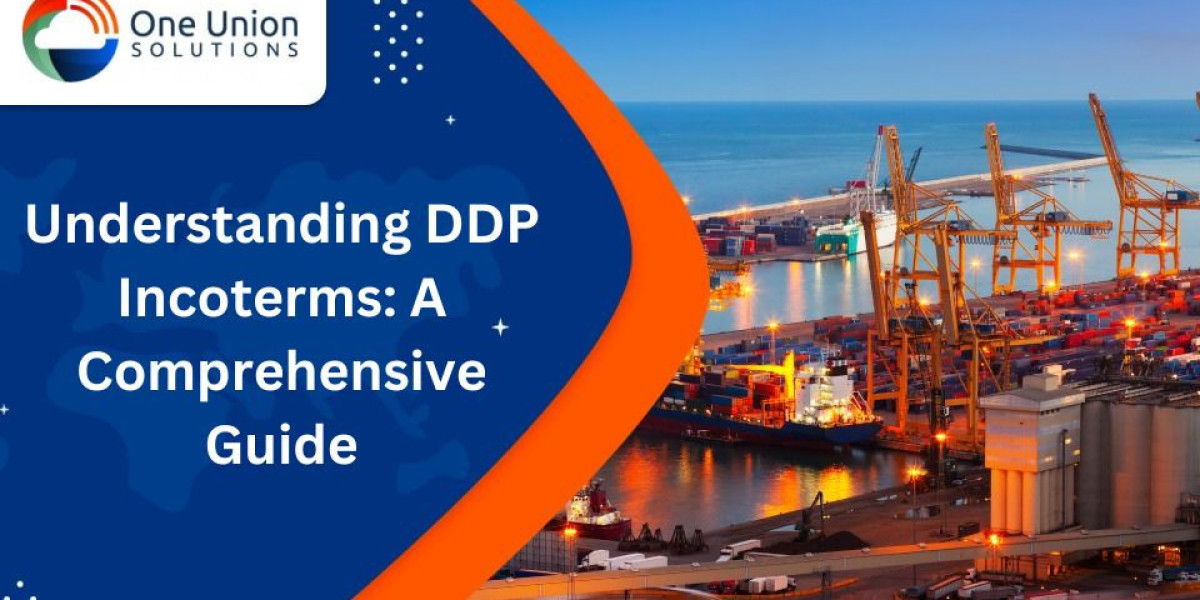The term DDP (Delivered Duty Paid) is one of the International Commercial Terms (Incoterms) established by the International Chamber of Commerce (ICC) to clarify responsibilities between buyers and sellers in international trade. DDP places maximum responsibility on the seller, making it an attractive option for buyers who prefer a hassle-free import process. This article explores the intricacies of DDP Incoterms, their benefits, challenges, and practical applications.
What is DDP?
Under the DDP Incoterms, the seller assumes full responsibility for delivering goods to a specified destination in the buyer's country. This includes handling all transportation, export and import duties, customs clearance, and associated costs. Essentially, the seller takes care of every step in the shipping process, ensuring that the buyer only has to receive the goods.
Key Elements of DDP:
Delivery Point: Goods are delivered to the buyer’s premises or another agreed location.
Responsibilities: The seller handles export clearance, freight, insurance, import duties, taxes, and customs formalities.
Buyer’s Role: The buyer’s role is limited to unloading the goods upon arrival and ensuring access to the delivery location.
Seller's Responsibilities in DDP
The seller’s obligations in DDP extend across multiple aspects of the shipping process:
Export Procedures: The seller arranges for export licenses and clears the goods for shipment from the country of origin.
Transportation: The seller organizes and pays for the entire logistics chain, including shipping, warehousing (if needed), and local delivery in the destination country.
Insurance: While DDP does not explicitly require insurance, sellers often include it as part of their comprehensive service to mitigate risks.
Import Clearance: The seller manages customs declarations, import duties, taxes, and other regulatory requirements in the destination country.
Delivery: The seller ensures the goods are delivered to the designated location, ready for unloading by the buyer.
Buyer's Responsibilities in DDP
The buyer's obligations under DDP are minimal. Their primary responsibilities are:
Unloading: Arranging for the unloading of goods upon arrival.
Local Support: Providing the seller with any necessary information or access for smooth delivery.
Benefits of DDP Incoterms
DDP offers several advantages, particularly for buyers who want a simplified import process:
Convenience for Buyers: Buyers avoid the complexities of international shipping, customs, and duty payments.
Cost Transparency: Since the seller bears all costs, buyers know the total expense upfront, enabling better budget planning.
Efficient Supply Chain Management: With the seller managing every aspect of transportation and clearance, delays and errors are minimized.
Better Customer Experience: Buyers receive goods delivered to their doorstep, making it an ideal arrangement for businesses with limited expertise in logistics.
Challenges of Using DDP
Despite its advantages, DDP also presents challenges, particularly for sellers:
Complexity for Sellers: Sellers must navigate the customs regulations, import taxes, and compliance requirements of the destination country, which can be time-consuming and complicated.
Cost Risk: Sellers bear significant financial risks, especially if unexpected customs duties, taxes, or delays arise.
Limited Control for Buyers: Buyers relying entirely on the seller may face limitations in choosing shipping routes, carriers, or timelines.
Legal and Tax Implications: Variations in tax laws and import regulations can create potential pitfalls for sellers unfamiliar with the destination country.
Practical Applications of DDP
DDP is commonly used in scenarios where the buyer wants to focus on core business activities rather than logistics. Examples include:
Consumer Goods: DDP is widely used in industries like e-commerce, where businesses prioritize fast and hassle-free delivery to end customers.
Specialized Equipment: Sellers delivering heavy machinery or specialized equipment often use DDP to ensure smooth delivery without delays caused by import formalities.
Small and Medium Enterprises (SMEs): For SMEs with limited resources or experience in international trade, DDP simplifies the process, enabling them to engage in global commerce.
DDP vs. Other Incoterms
Comparing DDP with other Incoterms helps illustrate its unique attributes:
EXW (Ex Works): In contrast to DDP, EXW places minimal responsibility on the seller, requiring the buyer to manage all transportation and customs duties.
CIF (Cost, Insurance, and Freight): Unlike DDP, CIF requires the seller to deliver goods to the port of destination, leaving import clearance and taxes to the buyer.
DAP (Delivered at Place): While similar to DDP, DAP excludes import duties and taxes, which remain the buyer’s responsibility.
Tips for Using DDP Effectively
Understand Local Regulations: Sellers should research the destination country’s customs procedures, taxes, and import regulations to avoid surprises.
Include Comprehensive Contracts: Both parties should clearly outline responsibilities, costs, and potential liabilities in the sales agreement.
Partner with Experts: Engaging freight forwarders or customs brokers can simplify the process and mitigate risks.
Evaluate Costs: Sellers should assess whether they can absorb the additional costs of DDP without impacting profitability.
Conclusion
DDP Incoterms represent a buyer-friendly option that simplifies international trade by transferring maximum responsibility to the seller. While this arrangement offers convenience and transparency for buyers, it demands a high level of expertise and resources from sellers. Understanding the nuances of DDP is crucial for businesses aiming to use this Incoterm effectively, ensuring seamless global transactions and stronger trade partnerships.








